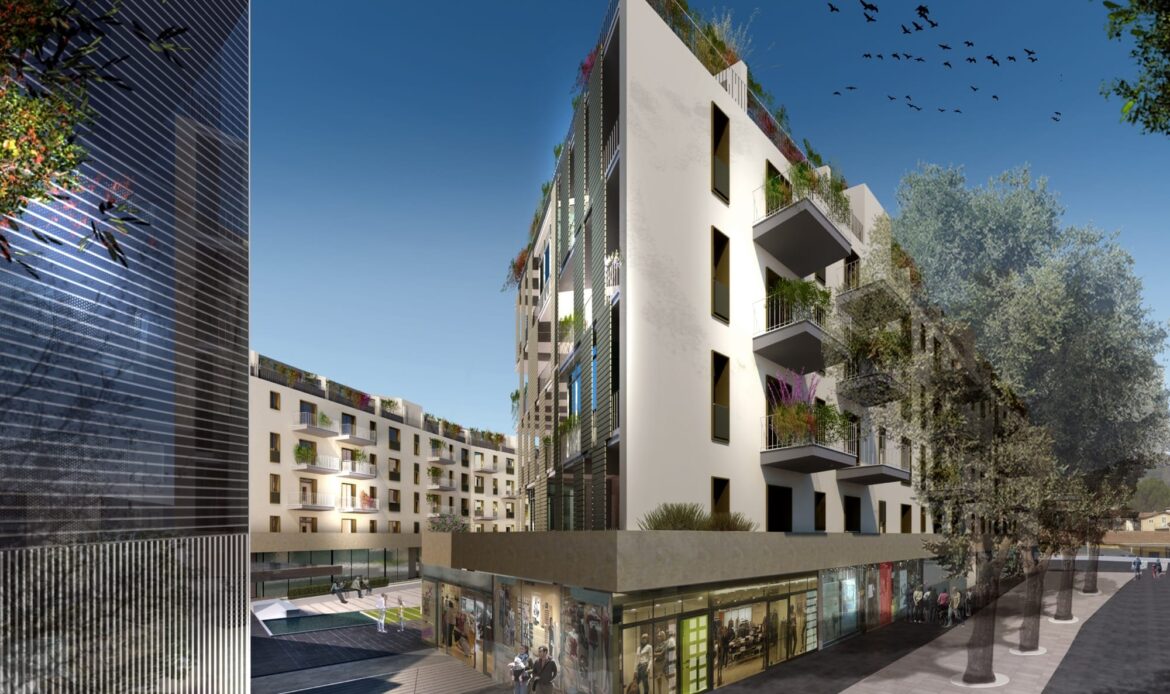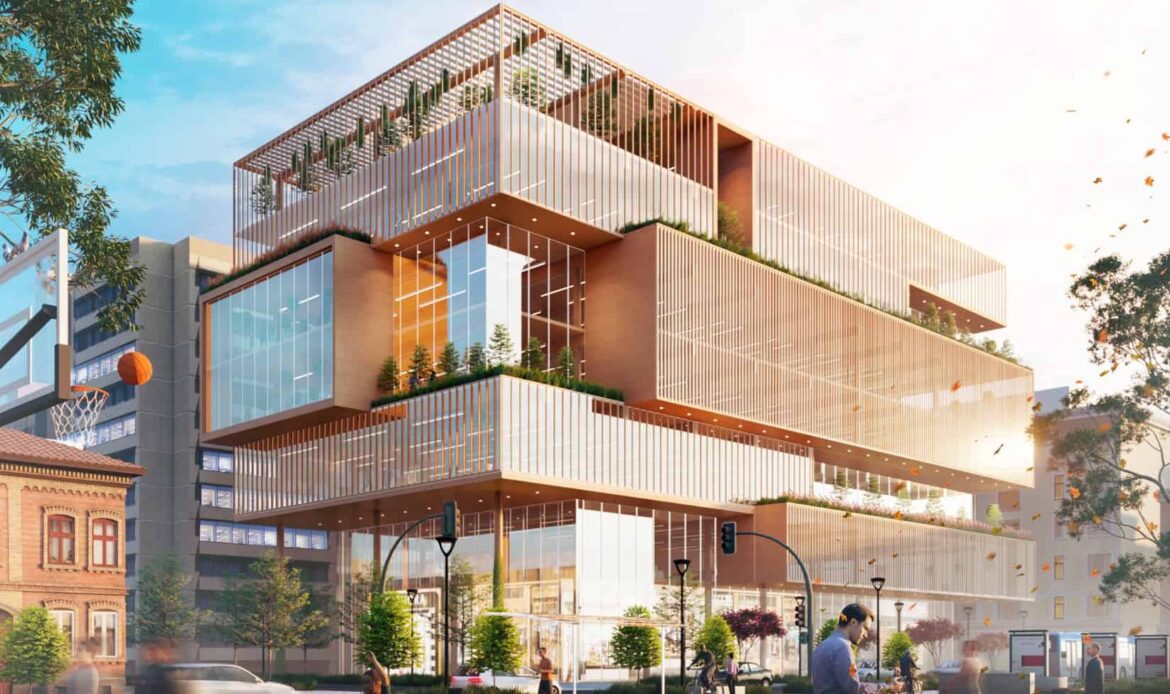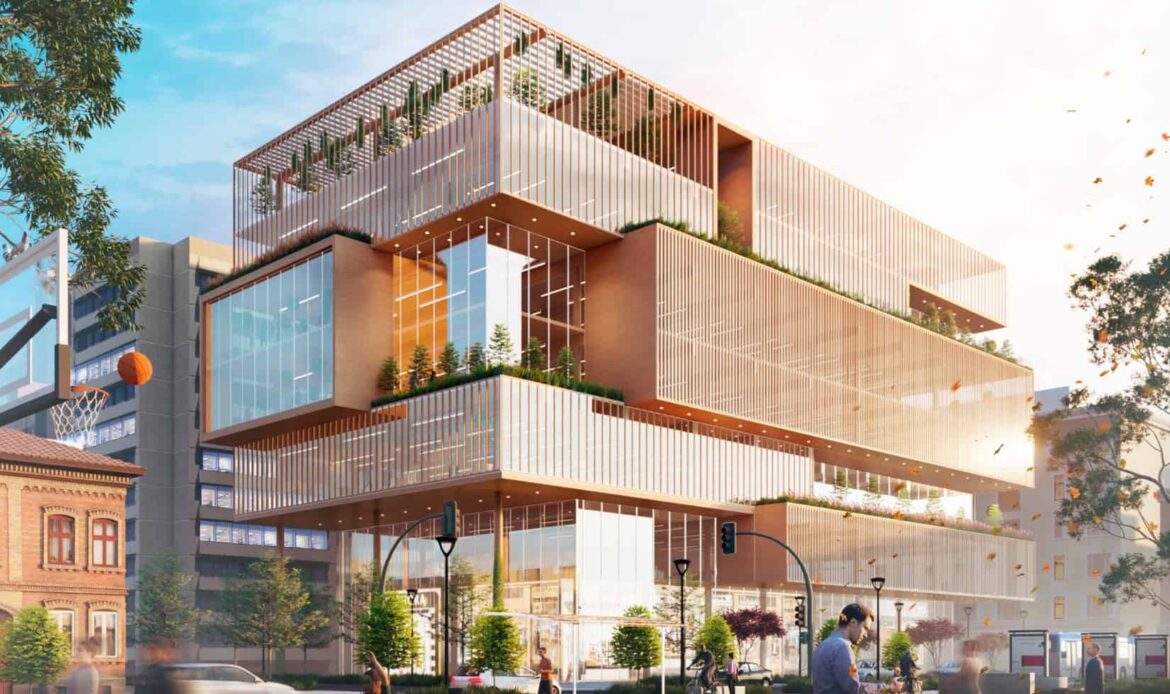

Strategic Success: Legal Considerations for Mixed Use Residential Projects in Nigeria
Introduction
Mixed-use residential projects are increasingly popular in Nigeria’s urban development landscape due to their ability to blend residential, commercial, and recreational spaces into one cohesive environment. These projects offer numerous benefits, including enhanced convenience, reduced travel time, and vibrant community spaces. However, the development of mixed-use residential projects in Nigeria involves navigating a complex web of legal and regulatory considerations. This article explores the key legal considerations for mixed-use residential projects in Nigeria, providing insights into regulatory requirements, compliance issues, and best practices for successful project execution.
In Nigeria’s rapidly urbanizing cities, mixed use residential projects are emerging as a practical and lucrative response to population growth, limited land space, and the need for modern, integrated communities. These projects combine residential, commercial, and sometimes even light industrial functions within a single development, offering residents and businesses the convenience of co-location and shared infrastructure.
While this model holds significant promise for economic growth and sustainable urban development, the legal and regulatory landscape surrounding such projects is complex, fragmented, and often challenging to navigate. Understanding the legal considerations for mixed use residential projects in Nigeria is fundamental to the success of any developer, investor, or legal advisor involved in real estate and property transactions.
At the heart of every mixed use residential development in Nigeria lies the question of land use. The Land Use Act of 1978 serves as the foundational legislation governing land administration in the country. The Act vests ownership of all land in each state in the hands of the Governor, who holds it in trust for the people. As a result, no individual or corporate entity can hold freehold title to land without the consent of the state government.
For developers, this means that the acquisition of a valid Certificate of Occupancy (C of O) is the first legal hurdle, and it must specifically reflect the intended use of the land. If land acquired for residential purposes is used for commercial activities, it could lead to revocation of the title or enforcement action by regulatory authorities.
The regulatory process governing mixed use developments involves a wide array of agencies, each with distinct roles. In Lagos State, for example, the Lagos State Physical Planning Permit Authority (LASPPPA), Lagos State Building Control Agency (LASBCA), and Lagos State Urban Renewal Authority (LASURA) all play a part in granting approvals for construction and development.
Each of these agencies has its own guidelines and requirements, which must be meticulously followed to avoid legal pitfalls. Beyond state authorities, some projects may also attract federal oversight, particularly when they involve environmental concerns or infrastructural implications. Compliance with these diverse regulations demands legal expertise that spans land law, administrative law, environmental law, and even taxation.
Zoning is another critical legal consideration. Most states in Nigeria operate under planning laws that assign specific zoning designations to different areas—residential, commercial, industrial, agricultural, and more. Mixed use developments must therefore be carefully located in zones that permit multi-purpose land use. In some cases, developers may apply for a re-zoning or variation, which is a bureaucratic process requiring the submission of detailed development plans, environmental impact assessments, and sometimes public consultations. Where zoning is disregarded or misunderstood, developers risk being issued demolition notices or court injunctions.
Environmental compliance plays a major role, especially in urban centers with increasing pressure on infrastructure and ecological balance. Under the Environmental Impact Assessment (EIA) Act, developers of large or multi-purpose projects are required to conduct an EIA and obtain a certificate of approval from the Federal Ministry of Environment. Failure to comply with this requirement can result in delays, denial of building permits, and even legal action. The EIA process itself is highly technical and may involve months of data gathering, public hearings, and submissions.
Land documentation and perfection of title are also crucial legal processes that must be handled with care. Title perfection involves several steps, including obtaining Governor’s consent, paying stamp duties, and registering the deed of assignment or leasehold at the relevant Land Registry. In many parts of Nigeria, especially in high-demand urban areas, land disputes arising from overlapping titles, fraudulent sales, and double allocations are rampant. Legal due diligence prior to acquisition is essential, involving thorough searches at the Land Registry, Site and Services Department, and the office of the Surveyor General. Engaging a competent lawyer at this stage can help identify red flags and avert long-term complications.
Another layer of legal complexity arises from community interests and customary land tenure systems. In areas where land is still governed by traditional authorities or family ownership structures, developers must negotiate with multiple stakeholders, secure valid documentation, and ensure that compensation or community development agreements are clearly defined and enforceable. The courts in Nigeria have in several instances upheld the rights of local communities against developers who failed to obtain free, prior, and informed consent.
Taxation and regulatory levies are equally important. Developers must factor in land use charges, development levies, stamp duties, withholding taxes, and value-added tax (VAT) on building materials or services. These taxes vary across states and are subject to periodic adjustments. Non-compliance could result in penalties, interest payments, or disqualification from obtaining necessary permits. A strong understanding of both federal and state tax regimes is necessary to ensure financial sustainability.
In conclusion, mixed use residential developments present an exciting opportunity to reshape Nigeria’s urban landscape. However, the legal considerations that accompany such projects are both intricate and essential. From zoning and title acquisition to environmental compliance and stakeholder engagement, every stage of the development process must be guided by a deep understanding of Nigeria’s legal framework. For developers and investors seeking to thrive in this environment, proactive legal strategy is not a luxury—it is a necessity.
The Importance of Mixed-Use Residential Projects
1. Urban Development and Sustainability
– Overview:
Mixed-use developments support sustainable urban growth by integrating various land uses within a single project, reducing the need for extensive transportation and promoting efficient land use.
– Impact:
These projects contribute to vibrant, walkable neighborhoods that foster community interaction and support local businesses.
2. Economic Benefits
– Overview:
By combining residential, commercial, and recreational spaces, mixed-use projects can enhance property values and stimulate local economies.
– Impact:
Such developments attract investment, create jobs, and provide diverse amenities that enhance the quality of life for residents.
Key Legal Considerations for Mixed-Use Residential Projects in Nigeria
1. Regulatory Framework and Compliance
– Overview:
Navigating Nigeria’s regulatory framework is essential for ensuring compliance with legal requirements and successful project execution.
– Key Regulations:
- Urban and Regional Planning Act: Governs land use planning and zoning regulations, providing guidelines for the development of mixed-use projects.
- Land Use Act: Regulates land ownership, acquisition, and use, impacting how land can be utilized for mixed-use developments.
2. Land Acquisition and Property Rights
– Overview:
Acquiring land and securing property rights are fundamental steps in the development process, requiring adherence to legal procedures and documentation.
– Legal Considerations:
- Land Title and Ownership: Ensure clear title and ownership of the land to avoid disputes and legal complications.
- Land Use Approval: Obtain necessary approvals for land use changes from relevant authorities, including zoning and land conversion permits.
3. Zoning and Land Use Regulations
– Overview:
Zoning and land use regulations dictate how land can be used and developed, impacting the design and function of mixed-use projects.
– Legal Considerations:
- Zoning Laws: Comply with zoning laws that specify allowable land uses, building heights, and densities.
4. Environmental Impact Assessment (EIA)
– Overview: Conducting an Environmental Impact Assessment (EIA) is crucial for evaluating and mitigating the environmental impacts of mixed-use residential projects.
– Legal Considerations:
- EIA Regulations: Adhere to regulations requiring EIA for large-scale developments to assess potential environmental impacts, such as pollution, habitat disruption, and resource depletion.
- Mitigation Measures: Develop and implement mitigation measures to address identified environmental impacts and comply with environmental standards.
5. Building Codes and Construction Standards
– Overview:
Adherence to building codes and construction standards ensures safety, quality, and compliance with legal requirements.
– Legal Considerations:
- Building Code Compliance: Follow national and local building codes that outline construction standards, safety regulations, and quality assurance measures.
- Approval Processes: Obtain building permits and approvals from relevant authorities before commencing construction.
6. Health and Safety Regulations
– Overview:
Ensuring health and safety regulations are met is critical for protecting residents, workers, and the public during construction and operation.
– Legal Considerations:
- Occupational Health and Safety Act: Comply with regulations that ensure the safety and well-being of construction workers, including safety training and protective measures.
- Public Safety: Implement measures to protect residents and the public from construction-related hazards, such as noise, dust, and heavy machinery.
7. Compliance with Property Laws
– Overview:
Compliance with property laws is essential for managing ownership, leasing, and operational aspects of mixed-use residential projects.
– Legal Considerations:
- Property Management: Develop clear property management agreements and lease terms for commercial and residential components
- Dispute Resolution: Establish mechanisms for resolving disputes between residential and commercial tenants, and address issues related to property maintenance and service delivery.
8. Public-Private Partnerships (PPPs)
– Overview:
Public-private partnerships (PPPs) can facilitate the development of mixed-use projects by combining public resources with private sector expertise and investment.
– Legal Considerations:
- PPP Agreements: Negotiate and draft PPP agreements that outline the roles, responsibilities, and financial arrangements between public and private stakeholders.
- Regulatory Compliance: Ensure that PPP projects comply with relevant regulations and receive necessary approvals from government agencies.
Best Practices for Managing Legal Considerations
1. Engage Legal and Regulatory Experts
– Overview:
Collaborate with legal and regulatory experts to navigate complex legal requirements and ensure compliance throughout the project lifecycle.
– Implementation:
Work with legal professionals who specialize in property law, urban planning, and environmental regulations to address legal issues effectively.
2. Conduct Thorough Due Diligence
– Overview:
Perform comprehensive due diligence to identify and address potential legal and regulatory issues before initiating the project.
– Implementation:
Review land titles, zoning regulations, environmental assessments, and building codes to ensure all legal requirements are met.
3. Foster Collaboration with Authorities
– Overview:
Engage with local authorities and regulatory bodies to streamline the approval process and address any concerns or requirements.
– Implementation:
Maintain open communication with relevant authorities, attend public hearings, and seek feedback to ensure compliance and address any issues promptly.
4. Develop Comprehensive Project Plans
– Overview:
Create detailed project plans that address legal, regulatory, and operational aspects of the development.
– Implementation:
Develop clear project timelines, budgets, and compliance strategies to guide the development process and mitigate potential risks.
5. Monitor and Adapt to Regulatory Changes
– Overview:
Stay informed about changes in regulations and standards that may impact mixed-use residential projects.
– Implementation:
Monitor regulatory updates, participate in industry forums, and adapt project plans to comply with new legal requirements.
Case Studies: Successful Mixed-Use Residential Projects in Nigeria
1. The Eko Atlantic City Project
– Overview:
The Eko Atlantic City Project is a large-scale mixed-use development in Lagos that integrates residential, commercial, and recreational spaces.
– Outcome:
The project demonstrates successful navigation of regulatory requirements, including land acquisition, zoning approvals, and environmental impact assessments.
2. The Landmark Village Development
– Overview:
Landmark Village is a mixed-use development in Lagos that combines residential, office, and retail spaces within a single complex.
– Outcome:
The development showcases effective integration of zoning regulations, building codes, and property management practices.
Conclusion
Addressing legal considerations for mixed-use residential projects in Nigeria is essential for ensuring successful development and long-term viability. By understanding and navigating the regulatory framework, complying with property laws, and implementing best practices, stakeholders can achieve effective project execution and contribute to sustainable urban development.
The complexities of mixed-use developments require careful planning, collaboration with experts, and adherence to legal requirements. Embracing these considerations will not only enhance the success of individual projects but also contribute to the overall growth and sustainability of Nigeria’s urban landscape. As Nigeria continues to evolve and expand its infrastructure, addressing legal considerations effectively will play a crucial role in shaping vibrant, resilient, and thriving communities.
The growing appetite for mixed use residential projects in Nigeria signals a transformative shift in how urban spaces are designed, utilized, and experienced. These developments offer a pathway to more efficient, connected, and vibrant communities. Yet, behind every successful project lies a network of legal structures that must be thoroughly understood and properly navigated. Ignoring or downplaying these legal aspects can turn even the most promising venture into a legal quagmire, draining both financial and reputational capital.
The complexities of Nigeria’s land use regime, particularly under the Land Use Act, remain a major determinant of development feasibility. Developers must understand that the Governor’s consent is not a mere formality but a foundational legal requirement for any transaction involving land. The importance of title verification, consent documentation, and statutory filings cannot be overstated. Numerous cases have arisen in which developers lost multi-million-naira investments due to improperly secured or duplicated land titles. Such risks make it imperative to undertake exhaustive legal due diligence long before any physical development begins.
Beyond title issues, the multiplicity of government agencies involved in the approval process can pose significant hurdles. A single project may require interaction with several offices—some of which may issue contradictory guidelines or delay the process due to bureaucratic inefficiencies. This regulatory fragmentation often becomes a breeding ground for corruption and uncertainty, both of which undermine investor confidence. However, with a knowledgeable legal team, it is possible to anticipate and address these challenges, reducing exposure to legal liabilities and keeping the project on track.
The role of environmental compliance continues to grow in importance, especially in densely populated cities where the ecological impact of new developments is under increasing scrutiny. An Environmental Impact Assessment is not just a bureaucratic requirement; it is a legal necessity that reflects a project’s potential harm or benefit to the community. Failing to obtain this certification can lead to sanctions, closure of the site, or reputational damage. Developers must treat the EIA process with the seriousness it deserves and should involve environmental consultants and legal advisors from the outset.
Another recurring issue in mixed use developments is conflict with local communities, particularly in areas governed by customary tenure systems. While a project may comply with statutory law, it may still be deemed illegitimate by the host community if customary protocols are not respected. Nigerian courts have often emphasized the need for inclusive stakeholder engagement, and failure to obtain community consent or provide agreed compensation can result in legal injunctions or adverse judgments. Legal counsel with a deep understanding of both statutory and customary law is indispensable in this regard.
The importance of strategic planning for regulatory compliance cannot be overemphasized. A legal roadmap that outlines all necessary approvals, timelines, and compliance obligations ensures that developers are not caught off guard. This roadmap should include contingencies for unexpected events such as changes in zoning laws, policy shifts, or sudden regulatory interventions. Legal foresight becomes a valuable asset, allowing developers to mitigate risk and respond swiftly to evolving circumstances.
Furthermore, mixed use residential projects must be evaluated through a tax lens. Developers are often unaware of the full tax obligations that accompany property development, including capital gains tax, stamp duties, and VAT. These fiscal responsibilities must be properly accounted for to avoid fines and ensure that the project remains profitable. A legal team with tax expertise can provide essential advice on structuring the transaction and optimizing for tax efficiency.
The judiciary has played a pivotal role in resolving disputes related to mixed use developments, with several landmark decisions setting precedents for zoning interpretations, community rights, and regulatory compliance. However, litigation should remain a last resort. Alternative dispute resolution mechanisms such as mediation and arbitration offer faster, more flexible means of resolving conflicts without lengthy court battles. Provisions for dispute resolution should be embedded in all major contracts, particularly joint venture agreements, community development contracts, and construction agreements.
Ultimately, the legal considerations surrounding mixed use residential projects in Nigeria are not mere formalities—they are the backbone of a successful venture. Every legal requirement, from title registration to environmental certification, contributes to the legitimacy, stability, and long-term viability of the development. Investors and developers who treat the legal process with seriousness and strategic intent stand to benefit not only from smoother execution but also from enhanced investor confidence and community acceptance.
In a market as dynamic and challenging as Nigeria’s, legal clarity is the true foundation of strategic success. As demand for mixed use spaces continues to rise, those who prioritize legal diligence will be the ones to thrive, innovate, and lead the transformation of Nigeria’s urban future.
· Mixed-Use Residential Projects
· Urban Development Nigeria
· Regulatory Compliance
· Land Acquisition Nigeria
· Property Rights Nigeria
· Zoning Regulations
· Environmental Impact Assessment (EIA)
· Building Codes Nigeria
· Health and Safety Regulations
· Public-Private Partnerships (PPPs)
· Property Management
· Sustainable Urban Growth
Contact Us
Chaman Law Firm today. Our offices are conveniently located in Lagos, FCT Abuja, Ogun State, and the UK. We are readily available to assist you with your legal needs. Whether you require consultation, representation, or ongoing legal support, Chaman Law Firm is your trusted partner.
Call us at 08065553671 or email us at info@chamanlawfirm.com to schedule a consultation.


